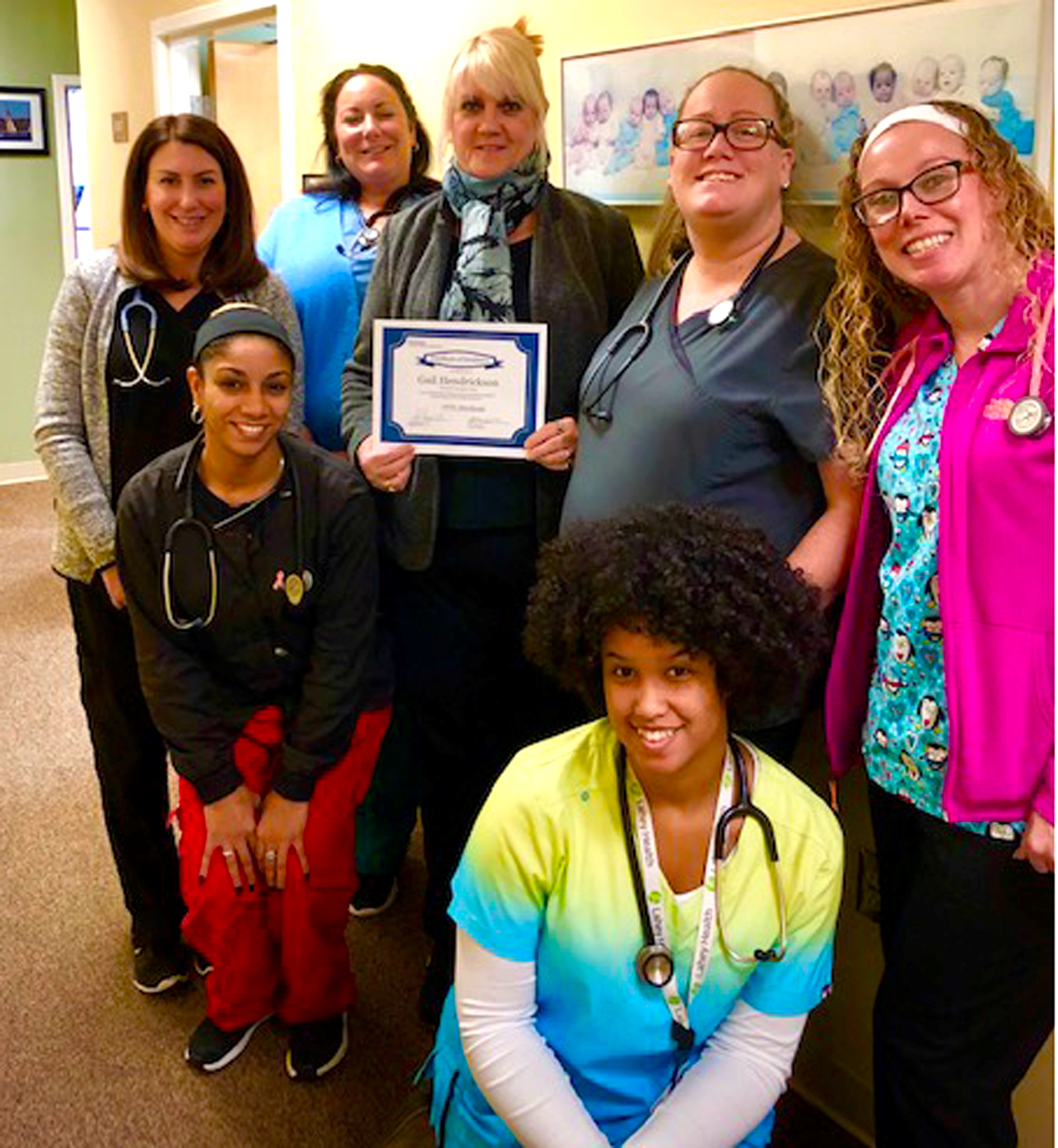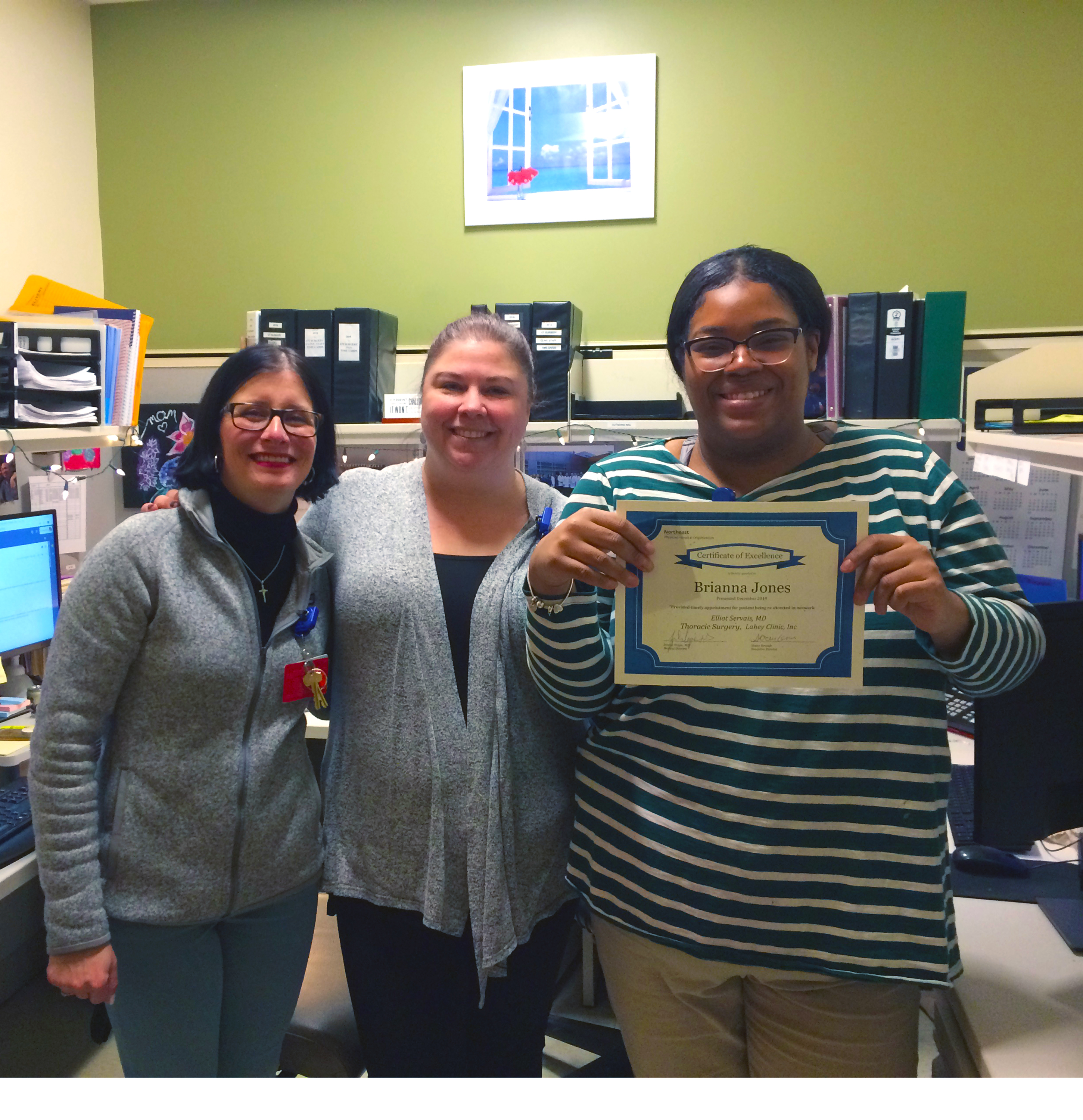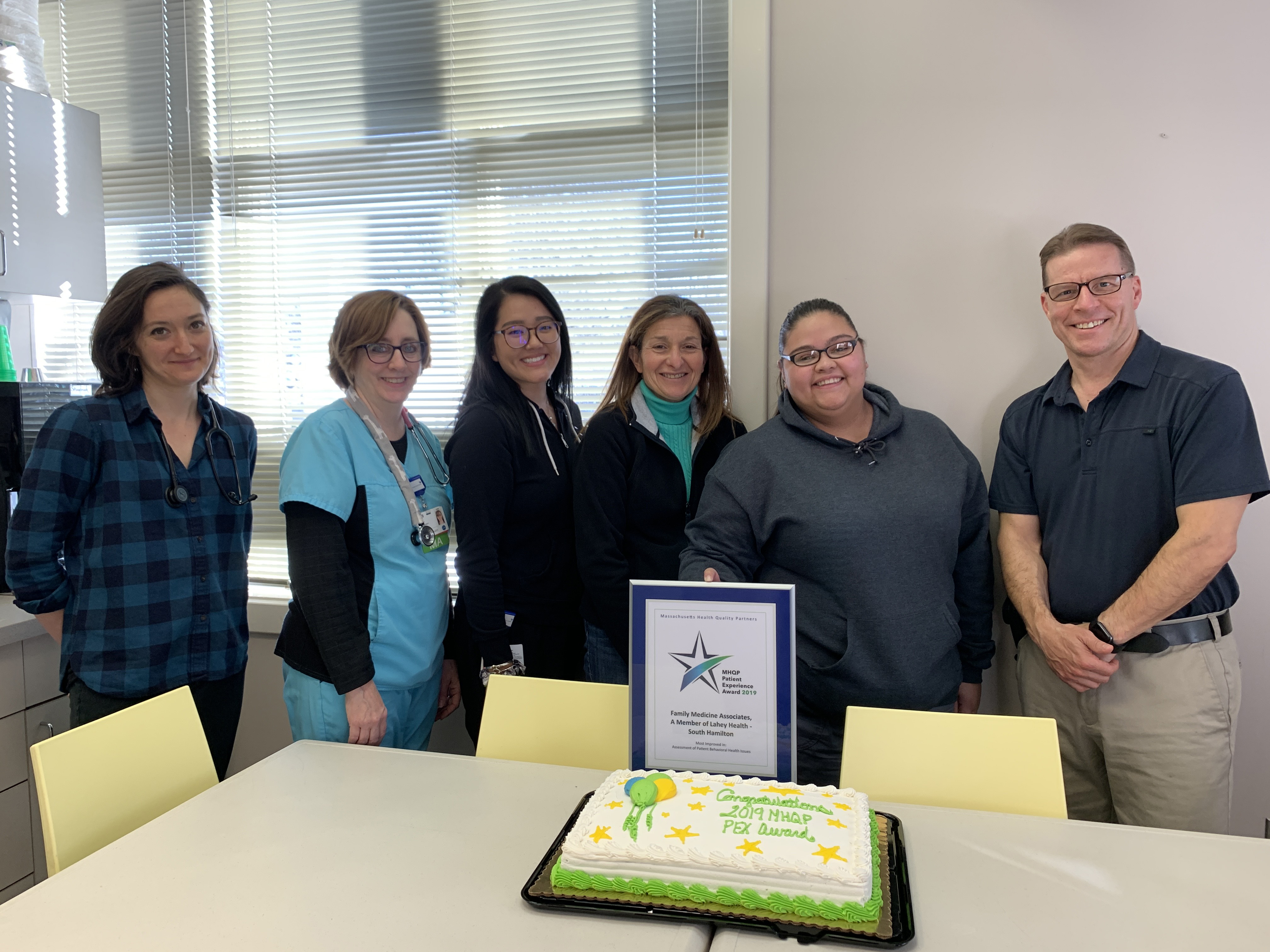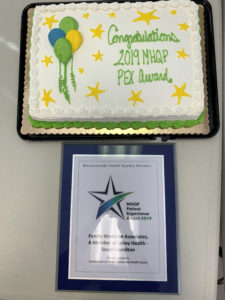NEW PROVIDERS
Daniel Luther, MD
Microsurgical Eye Consultants
31 Centennial Drive
Peabody, MA 01960
(P) 978-531-4400 – (F) 978-531-7106
Ryan Messiner, MD
Lahey Vascular, Beverly
500 Cummings Center Suite 1650
Beverly, MA 01915
(P) 978-232-3555 – (F) 978-232-3550
PRACTICE CHANGES/UPDATES
- Kimberly Mooney-McNulty, MD of North Suburban Eye Associates has relocated to 75 Herrick Street
Suite 115 Beverly, MA 01915 - Effective 12/23/2019, Justin Fernandes, MD of Beverly Shafer, M.D. has opened a Plastic Surgery Clinic at Addison Gilbert Hospital
NEWS FROM NEPHO
DECEMBER 2019 EDITION
IN THIS ISSUE:
Billing & Coding Google Hangouts Meetings
Beverly Hospital Opens new Hernia Clinic
SAVE THE DATE
NEW PHYSICIAN ORIENTATION
Date: January 21, 2020 @5:30 p.m.
Place: 500 Cummings Center – Suite 6500
Good Harbor Conference Room – Beverly, MA 01915
RSVP: Alycia.Messelaar@lahey.org or 978-236-1784
BILLING AND CODING GOOGLE HANGOUTS MEETINGS
Hello Office Administrators and Office Managers,
Our New Year’s Resolution is to provide you with more
Billing and Coding Guidance! Moving into 2020, we will
be implementing monthly Billing and Coding Webinars!
Please be on the lookout for meeting invites for brief coding
and billing discussions specific to your practice specialty.
Shawn Bromely and I look forward to working with you on this
new 2020 initiative to keep your practice in the know with billing and coding updates and additional assistance!
The following Google Hangouts Session are scheduled for:
| Surgery Specific codes | Jan 15th @ 10:00 – 11:00 a.m. |
| PCP Specific to E&M codes | Jan 22nd @ 10:00 – 11:00 a.m. |
| Radiology | Jan 29th @ 10:00 – 11:00 a.m. |
Alycia A. Messelaar
Manager, Provider and Payor Relations
Northeast PHO
500 Cummings Center, Suite 6500
Beverly, MA 01915
P: 978-236-1784 F: 978-236-1777
Alycia.Messelaar@lahey.org
IPA/POD MEETINGS SUMMARY
Efficiency
- The LCPN Commercial dashboard was reviewed.
- Membership, Risk Score, TME and Inpatient Utilization trending is favorable through Q2.
- LCPN YTD Q2 Leakage summary for adult Commercial and Medicare populations was reviewed. These reports reflect leakage outside of BILH.
- Commercial inpatient, outpatient surgery, and visits leakage look good through Q2, in some cases better than the others.
- For commercial professional visits specialty leakage, dermatology and pulmonology visits look high.
- Medicare leakage rates look good compared to others, despite the challenge of no referral requirements.
- Medicare Pulmonology and Orthopedic Surgery professional visits look high.
- Readmissions trends are okay overall.
- Pharmacy efficiency data was reviewed.
- Utilization and cost trending are favorable, but is likely to change as the year progresses due to specialty drugs.
- Specialty drugs account for 53% compared 48% previously, and cost and utilization have trended up mostly driven by Rheumatology specialty drugs, but overall cost is low largely due to pedi.
Reporting
- Updated Quarter 2 PCP Report Card was reviewed.
Meeting Attendance
- For IM and FM, PCPs must attend 9/12 meetings. Either the Annual meeting or Open Meeting II can be substituted for 1 of the POD meetings.
- In lieu of March POD meeting, PCPs will receive POD credit by attending the Open Meeting I.
- Practice meetings will be held in June and September, similar to IPAs.
- No change to pedi meeting requirement; the length of pedi meeting is extended from 30 minutes to 45 minutes.
Quality
- The current AQC scorecard shows a score of of 2.05, which is currently behind ytd 2018 score of 2.33.
Data updated for claims paid through September and outcomes year to date. - We have yet to meet the minimum threshold in 9 measures.
- Focus measures with suggestions for year-end push were presented.
- Updated Quality AQC PCP Action Lists and PCP Scorecards were distributed.
Patient Experience
- An update on the Press Ganey Transparency Pilot was provided.
- As of a call with Marketing on Nov 15, there is a new directive to build a BILH Primary Care Find A Doc directory.
- Marketing has recommended that NEPHO consider posting our information on this universal site.
BEVERLY HOSPITAL OPENS NEW HERNIA CLINIC
Hernia Center opens at Lahey Danvers
By Taylor Ann Bradford Staff Writer
Dec 17, 2019
DANVERS — With the hopes of offering comprehensive and specialized treatment for patients with all types of hernias, Beverly Hospital has opened a new clinic in Danvers and Gloucester. Beverly Hospital’s Hernia Center is now open and seeing patients at the Lahey Outpatient Center in Danvers and at Addison Gilbert Hospital Specialty Clinic in Gloucester. All three health care facilities are part of Beth Israel Lahey Health.
“We are excited to expand the services available to patients in the communities we serve,” said Cynthia Donaldson, vice president of the Lahey Outpatient Center and Addison Gilbert, in a prepared statement. “The multi-disciplinary team at the Hernia Center has the expertise in hernia care to meet the needs of patients with all types of hernia.”
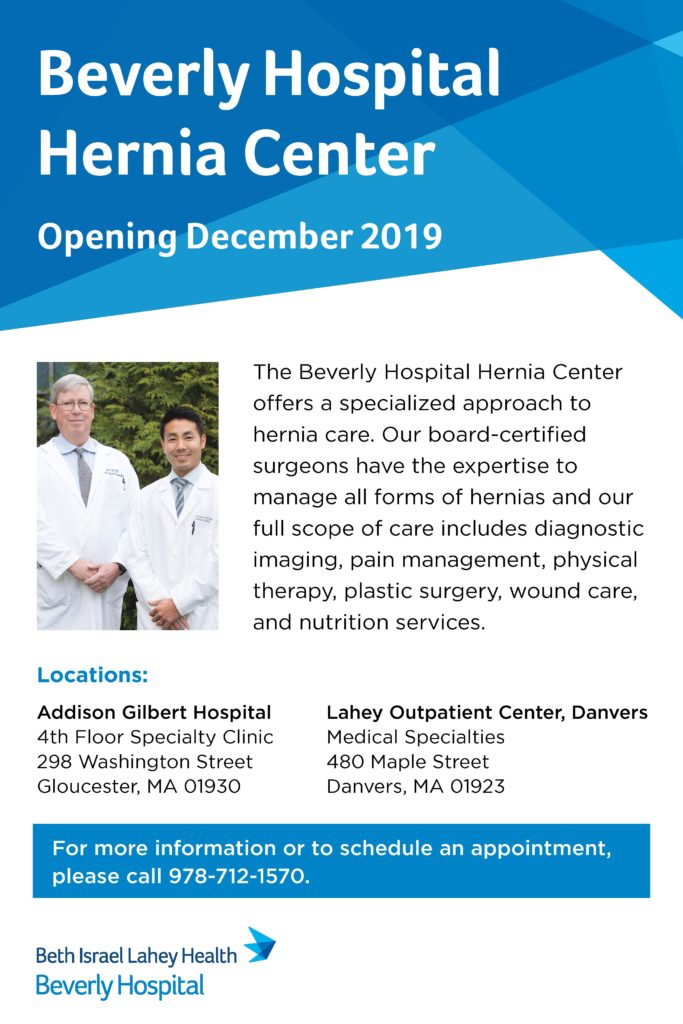
PAYOR UPDATES
Blue Cross Blue Shield of Massachusetts
BCBSMA Updating the Initial Authorization Process for PT and OT
Effective 01/03/2020 – Authorization/PreCertification
BCBSMA is updating the initial authorization process for physical therapy (PT) and occupational therapy (OT) services, effective for dates of service on and after January 3, 2020. This change applies only to new authorizations for the members listed attached. If providers have an existing authorization with remaining visits, providers do not need to request a new authorization. To view the complete notification, click here.
Harvard Pilgrim Health Care
Reminder: New Address for Submission of Medicare Advantage Claims
As a reminder, as of Jan. 1, 2020, the address for submitting StrideSM (HMO) Medicare Advantage claims is changing to:
Harvard Pilgrim Health Care, Inc.
c/o Stride Claims Processing
P.O. Box 93430
Lubbock, TX 79493
Stride members have been provided with new 2020 ID cards, which include the new claims submission address.
Please note that EDI payer IDs will remain the same.
For Stride claims mailed prior to this date, you should continue to use the following address:
Harvard Pilgrim Health Care, Inc.
c/o Stride Claims Processing
P.O. Box 151288
Tampa, FL 33684-1288
For additional information on claims submission, please refer to the Claims Policy in the Medicare Advantage Provider Manual.
Metabolic Monitoring for Children and Adolescents on Antipsychotics HEDIS Measure
While the cardiovascular disease (CVD) mortality rate has declined significantly in the United States, patients with severe mental illness continue to die prematurely from cardiovascular disease – with an estimated loss of life expectancy of up to 25 years predominantly due to CVD.
Patients who suffer from serious mental illnesses like schizophrenia, bipolar disorder, and depression comprise about 5 percent of the U.S. population. The leading cause of death in this population is preventable medical conditions like CVD and type 2 diabetes related to health risk factors such as lipid abnormalities, prediabetes, hypertension, metabolic syndrome, overweight/obesity, physical inactivity, and smoking.
Metabolic Monitoring for Children and Adolescents on Antipsychotics
The Metabolic Monitoring for Children and Adolescents on Antipsychotics (APM) HEDIS measure, developed in 2015, calculates the percentage of children ages 1–17 who have had two or more antipsychotic prescriptions filled, at least one metabolic test for blood glucose HbA1c, and at least one test for low-density lipoprotein cholesterol (LCL-C) or total cholesterol each year. Examples of first- and second-generation antipsychotic medications included in this measure are chlorpromazine, aripiprazole, clozapine, olanzapine, risperidone, haloperidol, and trifluoperazine.
While antipsychotic medications are effective in treating certain mental illnesses in children, their side effects can lead to or exacerbate other health problems. Children taking antipsychotics are prone to significant weight gain and obesity-related complications such as cardiovascular issues, hypertension, hypercholesterolemia, and insulin-resistant type 2 diabetes. Consequently, it is important that patients on antipsychotic medication have annual metabolic testing, and that the prescribing physician be made aware of the results.
Twice a year, Harvard Pilgrim sends registries to pediatricians and prescribers, listing their patients ages 1-17 who have had two or more antipsychotic prescriptions filled and are missing a cholesterol and/or blood glucose test in the calendar year. Sending this biannual metabolic monitoring report is a fundamental ongoing initiative of Harvard Pilgrim’s Patient Safety Program. For more information about this Harvard Pilgrim initiative, contact the Clinical Programs Department at 800-287-9793.
More information
To assist PCPs in navigating behavioral health conditions commonly found in primary care, Optum/UBH’s Behavioral Medical Director, Abigail Ostow, has narrated a Brainshark presentation that highlights various screening tools used as a basis for correctly diagnosing a behavioral health condition and identifying when a referral to a behavioral health provider is necessary. Optum’s Provider Express offers additional helpful resources, such as a Behavioral Health Toolkit for Medical Providers for Medical Providers, which includes one-page best practices documents on topics like children and adolescents on antipsychotic medications, among others.
Genetic Testing Code Updates
Harvard Pilgrim requires prior authorization for molecular diagnostic testing, managed through AIM Specialty Health® (AIM), and as part of our annual code update process, we have updated our Molecular Diagnostic Testing Prior Authorization Policy to include new 2020 CPT and HCPCS codes for dates of service beginning Jan. 1, 2020.
Claims that include deleted CPT and HCPCS codes for dates of service after Dec. 31, 2019 will be denied.
In addition, based on a review of CPT codes for molecular diagnostic services, Harvard Pilgrim will require prior authorization for a number of other existing codes beginning Feb. 1, 2020. For coding and other details, please refer to the updated commercial Molecular Diagnostic Testing Prior Authorization Policy.
As a reminder, ordering providers should request prior authorization from AIM for these codes in one of the following ways:
- Online at www.providerportal.com (refer to www.aimspecialtyhealth.com for registration instructions)
- By telephone at 855-574-6476 (Monday through Friday, 8 a.m. – p.m. EST)
Tufts Health Plans
Payment Policy Update: Preventive Services
Effective 12/03/2019 – Reimbursement
Tufts Health Plans has added diagnosis code Z15.01 & Z15.02 to BRCA Screening section.
To view the complete policy, click here.
QUALITY
Congratulations to Family Medicine Associates, South Hamilton/LPCO for being recognized by Massachusetts Health Quality Partners (MHQP) with a “2019 MHQP Patient Experience Award.” FMA South Hamilton was recognized for achieving statistically significant improvement in “Assessment of Patient Behavioral Health Issues.”
MA Health Quality Partners fielded its 2019 Patient Experience Survey from March through June. It is the only statewide survey of patient experience in primary care in Massachusetts. MHQP received over 60,000 survey responses from commercially insured patients. The results were used to identify top overall, highest and most improved performers in adult and pediatric primary care.
Winning practices were announced and celebrated at MHQP’s joint Board and Council meeting on December 4. See MHQP.org for complete list of performance categories and winners.
Congratulations to our colleagues at FMA-Hamilton/LPCO!
To read the news release from MHQP click here.
PHARMACY UPDATES
December 2019 Pharmacy Update
Pharmacy –Medication Adherence Report – Available in Epic
Recent dispenses of patient prescriptions to determine patient medication adherence are available in Epic within the “Medication & Orders” function. Their testing for the N-nitrosodimethylamine (NDMA) impurity, to include all lots of the medication before making them available to consumers.
Pharmacy Health Plan Updates
Tufts Health Together: Effective January 1, 2020, Tufts Health Together will no longer cover CGMs and their accompanying supplies (e.g., transmitters, sensors) through durable medical equipment (DME) suppliers. All CGMs and their accompanying supplies will be available at the pharmacy only; a prescription is required for all items. Dexcom G6(r) and its supplies will be preferred and will continue to require prior authorization. (Dexcom G4(r), Dexcom G5(r), FreeStyle Libre and Medtronic Guardian(tm) will not be covered). Requests for Dexcom G6 and its supplies will be reviewed against criteria in the Pharmacy Medical Necessity Guideline for Devices for the Management of Diabetes – Continuous Monitoring Systems. This guideline can be found here or in the Resource Center in the Provider section of the Tufts Health Plan website.
For questions or more information contact Carol Freedman, NEPHO Pharmacy Manager at 978-236-1744 or e-mail Carol.Freedman@Lahey.org
POPULATION HEALTH
The Microbiome
What is the Microbiome?
The human Microbiome is the composition of microbes in the human gastrointestinal tract, their genes, and the environment they occupy. In other words, the microbiome is a freestanding ecosystem in each individual’s gut. Of the trillions of microbes that live in or on our bodies, about 90% live within the gastrointestinal tract. The microbiota genome vastly outnumbers the human genome.
A strong microbiome aids in vitamin synthesis, immune system function, and xenobiotic (chemical compounds [drugs, pesticides, or carcinogens] that are foreign to a living organism) metabolism. It also fortifies the intestine’s impermeability. Other functions include biosynthesis of neuro-active metabolites and neurotransmitters like GABA, dopamine, and acetylcholine.
Nourishing the gut microbiome helps strengthen our body’s anti-tumor response. However, the microbiome is unable to take part in these functions without microbial diversity. More than 20% of our microbiome variability is associated with diet, drugs or supplements consumed, and overall body composition.
When the intestinal microbial communities collapse or become unbalanced due to a variety of causes such as infectious illnesses, drastic changes in dietary habits, chemical toxic substances, or prolonged use of antibiotics or other bacteria-destroying medications – dysbiosis occurs, stopping these normal interactions. As a result the body may become more susceptible to disease.
For more information on the microbiome and how antibiotics can alter the balance of community and function of the intestinal microbiota please visit the Population Health page.
Lucia Kmiec
NEPHO Health Coach
978-880-2318
lucia.kmiec@lahey.org
Diagnosis Capture and Documentation Complete the Patient Health Story
Patient Risk Adjustment Factor (RAF) is reset annually. Accurate diagnosis coding contribute to a complete picture of patient health status. As more payers move towards risk adjusted payment models the need to code accurately is necessary for total medical expense control.
Elements of good clinical documentation
When documenting, it is useful to keep in mind the potential audience – clinical staff, other providers, payers and administration. This will help achieve clarity and allow you to focus on the details that are most relevant to include.
The basics of documentation:
- Date, time and signature.
- Timing of events and review is crucial in putting together the information regarding a patient’s health.
- Include your name and title, add the names and titles of others present at the encounter.
- Document immediately or as soon as possible after care is provided.
- Prompt documentation reduces the risk of forgetting key details, and ensures all other team members are aware of any changes to a patient’s condition or management of care.
- If you are returning to the patient’s notes later, document clearly in the heading that it was documented in retrospect with current date and time.
- Document legibly.
- Be thorough, accurate and objective.
- Only use approved abbreviations.
- It is better to use no abbreviations at all to avoid confusion.
- If an addendum is made, communicate the change in documentation to other team members and clinical staff. Sign off any addenda with the time, date and full details.
- Documentation mistakes
- If a mistake is made, correct it with a single strikethrough, clearly sign and date the correction.
- The SOAP Documentation method (Subjective, Objective, Assessment, Plan):
- Subjective
- This section describes the patient’s current condition in a narrative form. Include the patient’s chief complaints, including onset, chronology, quality, and severity. It is important to document what the patient tells you about how they are feeling, in their own words. Use quotations if appropriate, using quotation marks.
- Objective
- Here, you should document objective, repeatable and measurable facts about the patient’s status.
- You may include objective observations about how the patient appears from the end of the bed. For example, “Patient appears pale and in discomfort”.
- In this section, also include observations and vital signs.
- Findings from physical examination, For example, “Widespread expiratory wheeze on auscultation of the chest”.
- If relevant, also include laboratory results, fluid balance (urine, IV fluids, NG feeds, drain outputs) and other measurements (age/weight).
- Assessment
- Summarize the primary medical diagnosis in this section. If the diagnosis has already been made, comment on whether the patient is clinically improving or deteriorating. For example,“Impression: Resolving community acquired pneumonia”.
- A complete list of all diagnoses and issues should ideally be completed in this section every 1-2 days, or whenever a new issue arises. This is extremely useful, especially for after-hours staff that may need to rapidly assess a deteriorating patient.
- Plan
- Document a clear plan, including further investigations, referrals procedures, new medications to be charted.
- If possible, include an estimated discharge date.
- Information for your Nursing Unit Manager to plan for the week.
- Subjective
- Documentation Examples:
- Documenting a phone conversation
It is important to document phone conversations with other medical teams and relatives of patients or clinical staff involved in the care of your patient. After the phone conversation, write a note clearly stating who was involved in the conversation including their role. Document the clear question that was posed, and summarize the main information and points that were gained from the conversation. It’s important to note the pager number/telephone number of the person who was contacted to facilitate further contact if they need to be contacted again. - Documenting a family meeting
Clear documentation is especially crucial in this setting as often key management discussions take place which can change the course of a patient’s care. Begin by documenting exactly who is present in the meeting, and their roles (family members, medical staff, and/or social worker). Document if a translator is present for the meeting. List each point as it was discussed and the general decisions that are made about each. Use quotations where relevant, using quotation marks. Summarize with the key agreements that were made at the conclusion of the meeting. Then, clearly document a plan forward – whether there has been a change in the patient’s treatment plan, or whether it is for ongoing discussion at a later stage. - Documenting a mistake
Rather than brushing over them or attempting to hide them, all mistakes must be formally documented to maintain transparency and so that the appropriate action can be taken. Document exactly what happened, including all persons involved. Document your assessment of the patient immediately afterwards (this is particularly relevant in the case of medication errors). Document if an incident report was logged.- Principal diagnosis – the condition which after investigation was found to be the cause for the admission.
- Co-morbidities – any conditions present on admission and treated. These conditions resulted in a change to the patient’s treatment, care or length of stay.
- Complications – conditions which arose during the admission and affected the patient’s treatment and length of stay.
- Procedures – surgical, non-operative, diagnostic, therapeutic procedures which required anesthesia, sedation or injected contrast.
- Documenting a phone conversation
Please contact Shawn Bromley at 978-236-1704 or shawn.m.bromley@lahey.org if you would like more information related to diagnosis capture or documentation requirements.
PATIENT EXPERIENCE COMMENTS
Cape Ann Medical Center – 1 Blackburn Drive
- Dr. Janet Doran takes a great deal in taking care of all my needs. She always gives me great care.
Thank you! - I have a lot of confidence in Dr. James Maguire.
Danvers Family Doctors – 140 Commonwealth Avenue
- Dr. Subroto Bhattacharya – Dr. “B” and staff always make you feel very comfortable.
Garden City Pediatrics, Beverly – 83 Herrick Street
- We are thrilled to have Dr. Suzanne Graves care for both of our children.
Lahey Health Primary Care, Beverly – 30 Tozer Road
- Dr. Tina Waugh is kind and so professional – she has a wonderful sense of humor. Wonderful experience!
- I feel fortunate to have Dr. Gail Ellis as my primary care physician.
Lahey Health Primary Care, Beverly – 900 Cummings Center
- The support we get from Dr. Daniel McCullough and his entire staff is excellent. We have recommended him to other family members.
Lahey Health Primary Care, Danvers – 480 Maple Street
- I have recommended Dr. Galina Feldman to several people and they say good things as well.
- Dr. Kristina Jackson’s receptionist at the Lahey Clinic was extremely helpful when I had last minute mammo scheduled. Great customer service!
Lahey Health Primary Care, Danvers – 5 Federal Street
- I am very happy I am a patient in this practice – have already highly recommended Dr. Margaret Legner and Lahey Primary Care to family and friends.
- Dr. Steven Keenholtz and staff are extremely competent.
Lahey Health Primary Care, Gloucester – 298 Washington Street
- Dr. Victor Carabba is a very kind and a very competent doctor.
Lahey Health Primary Care, Gloucester – 298 Washington Street
- Dr. Amy Esdale is one of the most compassionate, knowledgeable, and efficient doctors that I have ever had.
Lahey Health Primary Care, Hamilton – 15 Railroad Avenue
- Dr. Laurence Gordon is the best, always listens and answers questions.
North Shore Pediatrics, Danvers – 480 Maple Street
- Dr. David Danis is the best pediatrician ever!
Thompson Medical Center, Gloucester – 9 E. Dr. Osman Babson Road
- I can’t say enough about this compassionate doctor – Dr. Candace Thompson. She is truly one of a kind! Dr. Thompson is the very best physician I have ever had. She is attentive and understands and explains all my questions and makes me feel very comfortable. I hope to continue in her care for many many years.
PRACTICE RECOGNITION
The Northeast PHO recognizes colleagues who provide a positive experience for our patients, help us keep care local and meet our quality targets.
This month’s winners are:
Please let us know if you have any office staff you would like to nominate for the recognition program.
Gail Hendrickson, Family Medicine Associates – Manchester, was recognized for collaborating with the practice providers to support improvement in the quality measures.
Brianna Jones, Lahey Thoracic Surgery, was recognized for providing timely access to specialty care with Dr. Elliot Servais.
The staff of Lahey Health Primary Care, Gloucester have been recognized for excellent patient experience.
We appreciate their efforts in supporting the PHO goal to provide high quality, community health care. We will deliver gift cards to the winners each month, and they will be announced here in the newsletter.
Be sure to look for the new winners in next month’s issue!

